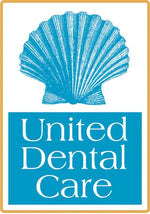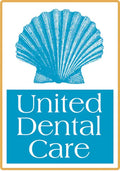
Emergency Dentist in Culver City CA
Epidemiological studies have shown that dental trauma has a global incidence rate of roughly 4.5% yearly. That equates to approximately 400 million people yearly or around 1 million recorded cases daily. Hence, the general concession remains: dental trauma is a significant oral health problem that needs to be addressed with a sense of urgency and care.



Never delay treatment for any of your dental issues that need urgent medical attention. Accidents resulting in dental trauma and tooth injuries are serious concerns that must not be simply neglected.
In the event of any tooth injury, better prevent your oral health from further damage by getting emergency dental care. Visit your nearest dentist here at Culver City Dentist United Dental Care and get the proper professional treatment. Learn More.
How do you classify a tooth injury or dental trauma?
All teeth, gum, or surrounding soft tissue injuries are classified as dental trauma. These cases include:
• Subluxation or a tooth knocked loose
• Intrusion or a tooth trapped in a socket
• Avulsion or a tooth completely displaced from its socket
• Chipped tooth
• Tooth fractures (whether in the root or enamel)
• Tooth socket wall fracture
• Lacerations (whether of the gums or lips)


Dental trauma does not include cases of concussion – that is where the teeth are hit hard yet have survived the dangers of being chipped, broken, and loosened from the gums. Although this is also painful, and the tooth may discolor after several days, this normally does not require immediate treatment. However, if a concussed tooth turns black or dark in shade, this prompts the need for a root canal treatment as this indicates that the tooth is slowly dying.
Playing sports, getting involved in physical violence, and accidents are said to be the top contributing causes of dental trauma. Recent studies on Traumatic Dental Injuries recorded that 5% of injured people requiring immediate medical attention are due to dental trauma. Likewise, up to 17% of all injuries among preschool children are attributed to this cause.
The Journal of the International Society of Preventive and Community Dentistry has also furthered that 13% to 39% of all Sports-related injuries are dental traumas, taking basketball as the sport with the highest injury rate.
Got Dental Insurance?
We've partnered with more than 70 insurance companies.
Check our list now for your treatment needs!







What is considered a dental emergency?
Any dental issues that need immediate treatment are considered an emergency. More often than not, cases involving uncontrollable bleeding and severe pain in the mouth demand prompt medical attention and care.
The following are the top common reasons why individuals seek emergency dental care:
• Avulsed or knocked-out Tooth
• Subluxated or loose tooth
• Badly cracked or broken tooth
• Dental abscess and canker sores
• Severe toothache
Several signs that must likewise be considered an emergency (among the aforementioned causes) include severe headache and numbness of the tooth.


Importance of getting immediate treatment
Neglecting immediate treatment for a should-be emergency dental case can be fatal. This has already been the concession among all dentists and the American Dental Association in 2016 – a reaffirmation that ignoring a toothache could potentially kill an individual as this could lead to infection.
Delaying dental treatment from the main time of trauma or injury only increases the chance of infection and other irreversible damage.
Hence, in events prompting medical treatment is deemed necessary, you better call our nearby experts in Culver City.



What to do while waiting for an emergency dentist
Everything you do from the moment you had your tooth injury up to the time you received medical attention is equally important in the treatment procedure. In this regard, here’s a quick guide on the basic things you can do while waiting for an emergency dentist:
| Dental Emergencies | Basic Things to Do | Things to Refrain from Doing |
| Swelling due to Severe Toothache | Use a cold compress and apply it on top of your face closest to the tooth | Avoid taking aspirin or other painkillers as they might burn gum tissues upon contact |
| Avulsed or Knocked-Out Tooth | Get the dislodged tooth by the crown and rinse off the root only if it’s dirty If permissible, put the tooth back in place to have a better chance of saving your tooth If a tooth cannot be reinserted back in place, put it in a small cup of milk or water with a pinch of salt to preserve |
Avoid removing attached tissue fragments in the knocked-out tooth Never touch the root of the knocked-out tooth |
| Chipped or Broken Tooth | Use clean and warm water to rinse your mouth, and then apply gauze to the bleeding area. To minimize swelling and reduce pain, apply a cold compress to the face near the tooth |
Refrain from biting down on hard food using the chipped tooth |
| Uncontrollable Post-Extraction Bleeding | Place a thick gauze over the extraction site and bite it down to apply pressure | To avoid flooding out the clot, avoid rinsing, drinking, eating, sucking, and spitting. Avoid smoking to prevent infection |
| Abscess | Use clean, warm water to rinse your mouth. To minimize swelling, apply ice to the area | Avoid smoking |
| Damaged Orthodontics: Braces and Dental Crowns | For Damaged Dental Crowns: Secure the remaining tooth’s portion attached to your gums and bring the damaged crown to your dentist For Damaged Braces: Secure your mouth from disentangled metal wires by carefully aligning it to a more comfortable position and/or using orthodontic wax to cover its exposed edge |
Refrain from DIY treatments such as using commercial adhesives to place back a damaged crown |
Get free evaluation

Emergency Treatments for Dental Trauma or Injury
Emergency treatments usually depend on the severity of dental trauma. That is why it is best advised to visit your dentist after surviving a tooth injury.
However, to give an overview of the treatments done for every trauma, check out the following:
• For a chipped or cracked tooth, a dental filling is recommended
• A severely damaged enamel or fractured cusps often requires a dental crown
• A split tooth fracture often leads to a complete tooth extraction
• Dislodged teeth are reestablished through root canal treatment
A pediatric dentist closely monitors cases of dental trauma for children below 12 years old. The usual treatment may not apply to them, given that most of their teeth are not yet permanent. Hence, a root canal treatment for severely fractured cusps among children may not be professionally advised.
Frequently Asked Questions
Most cases of toothache do not need immediate medical attention. However, when swelling occurs and that severe pain is also experienced, emergency dental care is deemed necessary. In the absence of a nearby dentist, however, a cold compress applied to the face near the tooth can help reduce swelling and pain.
A cracked tooth does not need to be pulled unless irreparably damaged. In such cases, tooth extraction is the ultimate safeguard for dental health.
If restorative treatments can save the cracked tooth, pulling it off entirely from the gums would be unnecessary. Dental fillings, crowns, and root canal treatments are viable procedures to which one can resort.
Tooth discoloration caused by concussion does not require immediate dental treatment. However, if the discoloration is dark or black, the tooth is dying and therefore needs an emergency dental intervention.
Talk to our Emergency Dentist Now
Tooth injuries can’t wait. So are its alarming consequences.
Save your oral and dental health by getting immediate dental care. Consult our emergency dentist.
Call (310) 390-6000 or make an online appointment.



